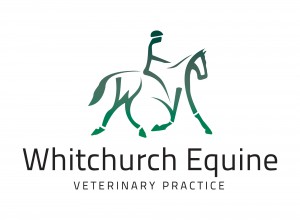With over 25% of the UK equine population now aged over 15 years we are seeing numbers of clients with Senior (greater than 15 years old) and Geriatric (greater than 20 years old) equines. With the associated increased length of ownership so stronger owner- pet bonds are being forged, leading to clients quite rightly wanting the best for their aged horsey friends.
Senior horse issues
- worms
- nutrition
- end of life question
Weight
Weight issues can be either TOO much or TOO little, with some older horses and ponies seemingly able to pile on the weight whilst others struggle to maintain adequate condition. Regular use of weigh tapes and Body Condition scoring will allow you to monitor which camp your Senior resides in! Simple instructions on weight monitoring and Body condition scoring can be found at: https://www.baileyshorsefeeds.co.uk/body-condition-scoring
Always consider why might your horse be having weight issues?
- inability to chew food due to poor dental health,
- absorption of nutrients may decline with age,
- poor utilisation of nutrients due to underlying Insulin resistance (PPID/EMS),
- parasitism
- underlying liver problems.
Teeth
For various reasons your horse’s molar teeth may become loose in their sockets and no longer able to endure the massive forces of mastication leading to chewing issues, dropping of food (quidding), weight loss and occasionally choke. Equines are not going to display the human signs of tooth ache and most cases of severe dental decay go unnoticed until an adequate dental examination is undertaken. Sedation is often required to examine reluctant animals due to their oral discomfort.
Often we find horses with oral discomfort have behavioural changes and once we remove the tooth under sedation and a nerve block, these horses bounce back to their previous self...
PPID/EMS and Cushings syndrome
Cushings syndrome(PPID) is widely known about with clinical signs ranging from weight loss, lethargy, recurrent laminitis and delayed coat shedding. Extensive information is available at https://www.careaboutcushings.co.uk/
There is increasing awareness now that Insulin dysregulation (the abnormal regulation of Insulin levels) is the probable driving force behind many Laminitis episodes. Equine Metabolic Syndrome (EMS) is caused by body fat depots releasing steroids that affect natural Insulin regulation. Ill termed the ‘Equine Diabetes’ this condition can be diagnosed by blood tests and treated with Dietary modification, increased exercise, if possible, and temporary medication with Metformin.
We would ask that all Senior equines are tested for Cushings syndrome yearly to monitor their risk. Laminitic animals should be tested for both Cushings and EMS to rule out causes of cyclic episodes….
Nutrition
The loss of teeth and any other dental abnormalities will reduce the ability of your horse to eat, in particular, long fibre such as hay and haylage. The use of fibre based feeds such as Sugar beet and ready made ‘mashes’ are a good way of ensuring a constant intake low starch/ low sugar compounds. Many feed companies offer advice on feeding the older horse such as; https://www.spillers-feeds.com/feeding-hay-replacers/. You may need to supplement mashes with vegetable oil to increase their calorie content and to consider two-four meals daily in some situations.
Immunity
As your horse ages so will their immune system. Older animals can have a reduced immune response to vaccinations so please maintain their vaccinations against Equine Influenza and Tetanus even if they are not moving is their previous competition circles.
Similarly ensure Feacal Egg Counts are regularly undertaken at 10-14 week intervals as older horses seem to have increased risk of parasitism…
End of Life Decision
No one likes thinking about your worse case scenario but we have to address the issue sometime. Many Seniors seem to continue year after year slowing ageing, losing a little weight, a tooth and getting a bit grumpy with the farrier. When do you say enough? Sometimes the body condition will lead you in your decision. Sometimes the horse just seems to have lost interest in life or a combination of factors. Always consider your life as the emotional drain of an elderly horse can be telling.
When the time comes please discuss what options are available with your vet and ensure your yard manager knows your decisions. The BHS have kindly produced a form which may help;
